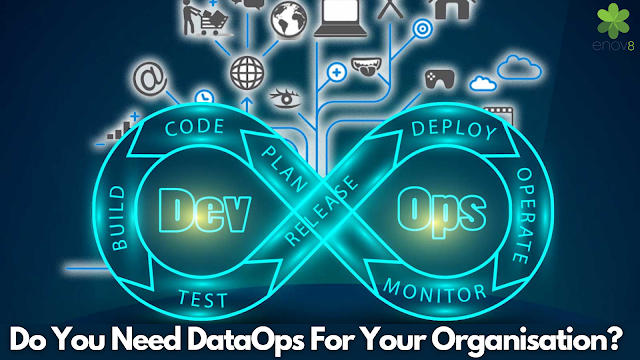Do You Need DataOps For Your Organisation?
With data becoming the backbone of any industry, managing overwhelming volumes of data, intricate data processes and adhering to data compliance protocols has now emerged as a challenge.
Enter DataOps!
DataOps focuses on fostering collaboration between your data analysts and engineers, tools teams and operations to support a model of a truly data-driven organisation.
Are you planning to implement DataOps principles with your organisational workflow? Want to understand the scope of Data Ops in depth for better integration? You’ve just landed at the right place!
In this article, we’ll discuss the role, importance and best practices related to DataOps.
Regardless of the industry or DataOps principles you adopt, ensure hiring an experienced DataOps company for optimal outcomes.
Understanding The Concept Of DataOps Framework
Many misconceptions have painted DataOps as a magical tool that can vanish all your data problems. Or that the DataOps approach is a replica of DevOps but for data pipelines.
All these misconceptions lead to another wrong understanding- DataOps is the exclusive responsibility of your data teams. DataOps is not just the responsibility of your Data teams but all other related teams (operations, tools, etc.).
- DataOps framework represents a collaborative data management approach, emphasising enhanced communication, integration, coordination and automation of data workflow between managers and consumers of data within your enterprise.
- DataOps technique is all about bringing tools you love, the processes your organisation need and your people under a common umbrella for improved data management within your enterprise.
Is DataOps Required In Your Organisation?
Challenges Solved By DataOps Techniques
Streamlining Complex Data Landscapes
- Financial transactions
- Customer information ( including sensitive data subject to data compliance governance and privacy laws)
- CRM data
- Online reviews and comments
Technology Overload
Siloed Culture Between Diverse Data Roles and Responsibilities
- Data engineers are generally deal with data preparation and transformation.
- Data scientists focus on extracting the right data for their algorithms.
- Analysts worry about creating daily/weekly analytics, reports and visualisations.
- Business managers are contsantly active to find out whether the business is flourishing.
- IT functions (enterprise release manager, release engineer, quality analysts) primarily involve maintaining data access protocols ensuring data quality, security and integrity.
Benefits Of DataOps Framework
- Decentralisation of data: Enables universal data access to everyone within the organisation who may benefit from it.
- Faster insights: Since everyone has uniform visibility and access to data, your team members can extract real-time insights and implement them for better outcomes.
- Robust governance: DataOps ensures standardising data processes, policies and ensuring centralised data governance.




Comments
Post a Comment